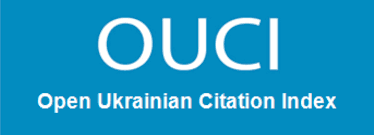Biochemical markers of the functional state of liver in blood serum of rats consuming glyphosate-resistant genetically modified soybean and herbicide “Roundup”
I. V. Chorna1, G. V. Dronic2, V. I. Kulish2
This email address is being protected from spambots. You need JavaScript enabled to view it.
1Institute of Postgraduate Pedagogical Education of Chernivtsi region,
20 Ivana Franka str., Chernivtsi, 58002, Ukraine, tel. (+38 0372) 52-73-36
2Bukovynian State Agricultural Research Station, Institute of Agriculture of Carpathian Region NAAS,
21 Bohdana Kryzhanivskoho str., Chernivtsi, 58025, Ukraine, tel. (+38 0372) 52-92-20
Тhe effect of glyphosate-resistant genetically modified soybean and herbicide “Roundup” on the enzymatic activity of aspartate aminotransferase (AST), alanine aminotransferase (ALT) and γ-glutamyltransferase (GGT), and on the content of middle mass molecules in rat serum has been investigated. The studies were made on the Wistar rats divided into five groups: 1st group — intact; 2nd group — 25% of rat’s ration was replaced by traditional soybean; 3rd group — the rats received feed containing genetically modified soybean not treated with the herbicide “Roundup”; 4th group — the rats received feed containing genetically modified soybean treated with the herbicide; 5th group — the rats received the herbicide “Roundup” with drinking water. After 42 days females of all groups were mated and continued to receive the same diet and herbicide with drinking water. In 22–24 days the next generation of rats was born. In the first and second generation of rats fed with the herbicide “Roundup” and transgenic soybean treated with this herbicide, the hyperenzymemia of ALT, AST and GGT in compared with control group was observed. At the same time, De Ritis Ratio wass reduced to values of 0.8 and 0.7 for the rats fed with soybean “Roundup Ready” and herbicide, respectively. It is shown that the level of middle mass molecules in blood serum of the first rat generation increases in 1.5 and 1.6 times in cases of feeding rats with genetically modified soybean treated with herbicide and herbicide only; the increase in the content of middle mass molecules is observed in the second generation too. The increase of middle mass molecules content in blood serum indicates a syndrome of endogenous intoxication.
Key words: aspartate aminotransferase, alanine aminotransferase, γ-glutamyltransferase, middle mass molecules, herbicide “Roundup”, genetically modified soybean, serum, liver
-
Dimov DM. Comparison of four metods for the estimation of γ-glutamyl transpeptidase activity in biological fluids. Chim. Acta. 1967; 16 (2): 271–277. DOI: 10.1016/0009-8981(67)90192-1.
-
Dolaychuk OP, Fedoruk RS, Kovalchuk II, Khrabko MI. Physiological influence of soybeans on native and transgenic varieties on the body of females of third generation rats. Bìol. Tvarin. 2013; 15(3): 22–30. DOI: 10.15407/animbiol03.022. (in Ukrainian)
-
European convention for the protection of vertebrate animals used for experiments and other scientific purposes. Strasbourg, Council of Europe, 1986: 53.
-
Gabrielyan NI. Experience in using the index of average molecules in blood for the diagnosis of nephrology in children. work. 1984; 3: 138–140. (in Russian)
-
Ketsa OV, Marchenko MM. The effect of diet ratio of polyunsaturated fatty acids of ω-3 and ω-6 families on activity of aminotransferases and γ-glutamyltransferase in rat blood serum. Nutr. 2014; 83 (1): 27–32. Available at: https://www.voprosy-pitaniya.ru/ru/jarticles_diet/245.html?SSr=090134892f05ffffffff27c__07e60207050911-5017 (in Russian)
-
Ketsa OV, Shmarakov IO, Marchenko MM. Lipid peroxidation in cardiac mitochondrial fraction of rats exposed to different supplementation with polyunsaturated fatty acids. Chem. 2016; 62 (1): 50–55. DOI: 10.18097/PBMC20166201050. (in Russian)
-
Marchenko MM, Ketsa OV. Functional activity of the NADH-dependent reductase system in liver and Guerin’s carcinoma microsomal fraction in rats exposed to preliminary irradiation. (Moscow) Suppl. B: Biomed. Chem. 2012; 6: 322–328. DOI: 10.1134/S1990750812040063. (in Russian)
-
Natarajan S., Xu C, Bae H, Bailey BA, Cregan P, Caperna TJ, Garrett WM, Luthria D. Proteomic and genetic analysis of glycinin subunits of sixteen soybean genotypes. Plant Physiol. Biochem. 2007; 45 (6–7): 436–444. DOI: 10.1016/j.plaphy.2007.03.031.
-
Reitman S, Frankel S. A colorimetric method for the determination of serum glutamic oxalacetic and glutamic pyruvic transaminases. J. Clin. Pathol. 1957; 28 (1): 56–63. DOI: 10.1093/ajcp/28.1.56.
-
Salyha NO, Snitynsky VV. Genetically modified plants and their influence on the organism of animals. Bìol. Tvarin. 2010; 12 (2): 61–74. Available at: http://archive.inenbiol.com.ua:8080/bt/101/5a.html (in Ukrainian)
-
Samsonyuk I, Stronsky U. Activity of transaminases and alkaline phosphatase of serum of blood of rats of three generations, fed by genetically modified soybean. messenger LNUVMBT S. Z. Gzhytsky. Vet. ser. 2013; 15 (3/57); 2: 279–283. (in Ukrainian)
-
State Standard of Ukraine ISO 21569:2008. Methods of detection of genetically modified organisms and products with their content. Qualitative methods based on nucleic acid analysis. 2005, IDT. (in Ukrainian)
-
State Standard of Ukraine ISO 21570:2005. Food products. Methods of detecting genetically modified organisms and products with their content. Quantitative methods based on nucleic acid analysis. 2005, IDT. (in Ukrainian)
-
Szasz GA. New substrates for measuring gamma-glutamyl transpeptidase activity. Klin. Chem. Klin. Biochem. 1974; 12 (5): 228. PMID: 4155184.
-
Vudmaska IV, Paranyak RP, Yanovych DO, Semenovych VK, Golubets RA. Quality and safety assessment of genetically modified organisms. Bìol. Tvarin. 2007; 9 (1–2): 23–29. Available at: http://archive.inenbiol.com.ua:8080/bt/0712/074a.html (in Ukrainian)














